Key takeaways:
- Oceans are essential for life, producing over half of the oxygen we breathe and hosting diverse ecosystems critical for environmental balance.
- Plastic pollution severely impacts marine life and coastal communities, necessitating immediate action to protect ocean health.
- Innovative cleanup methods, such as floating barriers and AI technology, along with grassroots community efforts, show promise in addressing ocean plastic issues.
- Evaluating the effectiveness of cleanup efforts through data collection can inform strategies for sustainable practices and broader environmental change.
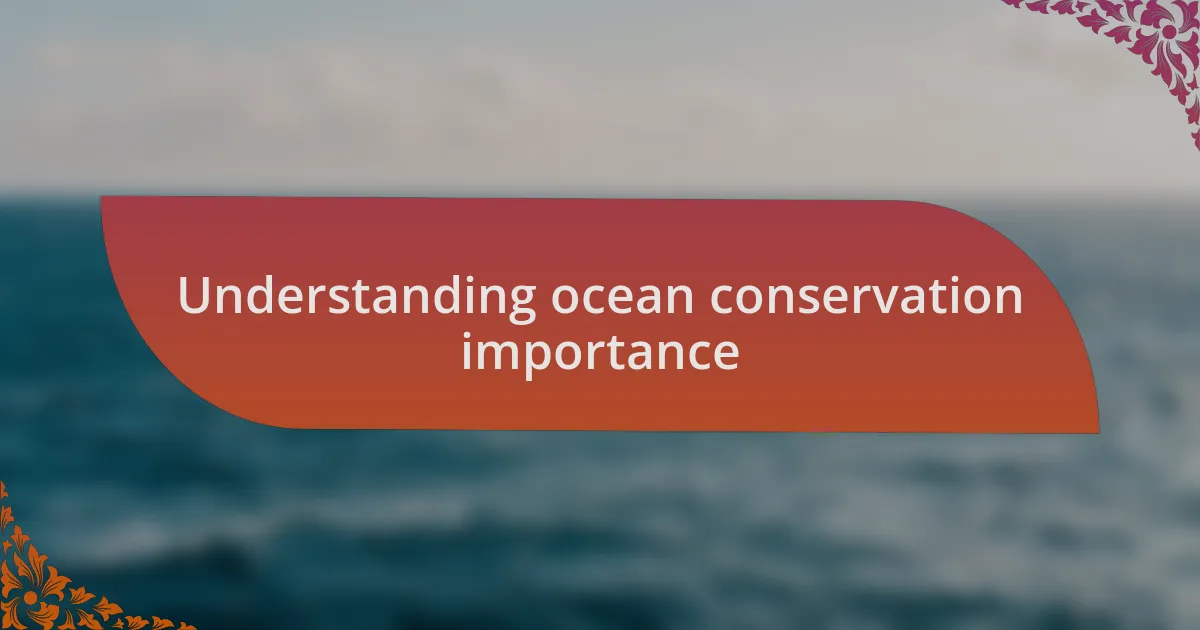
Understanding ocean conservation importance
Ocean conservation is vital because our oceans are the lungs of the planet, producing over half of the oxygen we breathe. I remember standing on a beach, watching the waves roll in, and feeling a deep connection to that vast body of water. It struck me then that our health and survival hinge on these ecosystems, making their preservation incredibly important.
The ocean is home to a staggering diversity of life, many of which we still don’t fully understand. When I first learned about the complex relationships between marine species, I was awestruck. How can we afford to lose even one species? Each organism plays a crucial role, and their extinction can ripple through the entire ecosystem, affecting everything from the smallest plankton to the largest whale.
Moreover, oceans influence our climate and weather patterns significantly. Reflecting on extreme weather events I’ve witnessed in my lifetime makes it all too clear how interconnected our world is. If we neglect ocean health, we risk increasing disasters that could affect generations to come. So, why wouldn’t we step up to protect these vital resources?
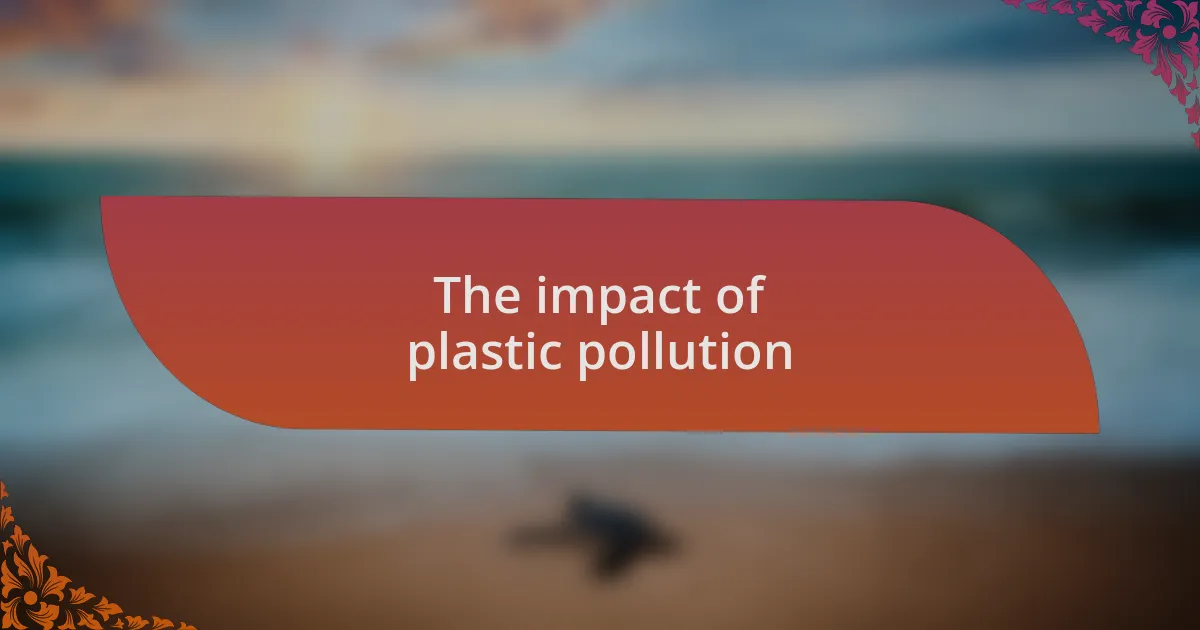
The impact of plastic pollution
Plastic pollution has a profound impact on marine life, leading to the death of countless animals who ingest or become entangled in it. I once watched a documentary showing the heartbreaking sight of a sea turtle strangled by a plastic bag. It was devastating to see how our negligence can manifest in such tragic ways, leaving me to wonder how many more animals suffer in silence.
Additionally, the presence of microplastics in the ocean raises alarming concerns. These tiny particles are not just a threat to the ocean’s food web; I recall reading about how they can end up in our own food sources, including fish that we consume. How can we ignore the potential health risks when the very creatures we rely on for nourishment are contaminated? It underscores the urgency for immediate action.
Beyond wildlife, plastic pollution also affects coastal communities reliant on fishing and tourism. I’ve spoken with fishermen who’ve witnessed declining catches and the impact on their livelihoods because of polluted waters. If the ocean’s health deteriorates, we all pay the price, reminding us that every small action we take can contribute to a larger solution.
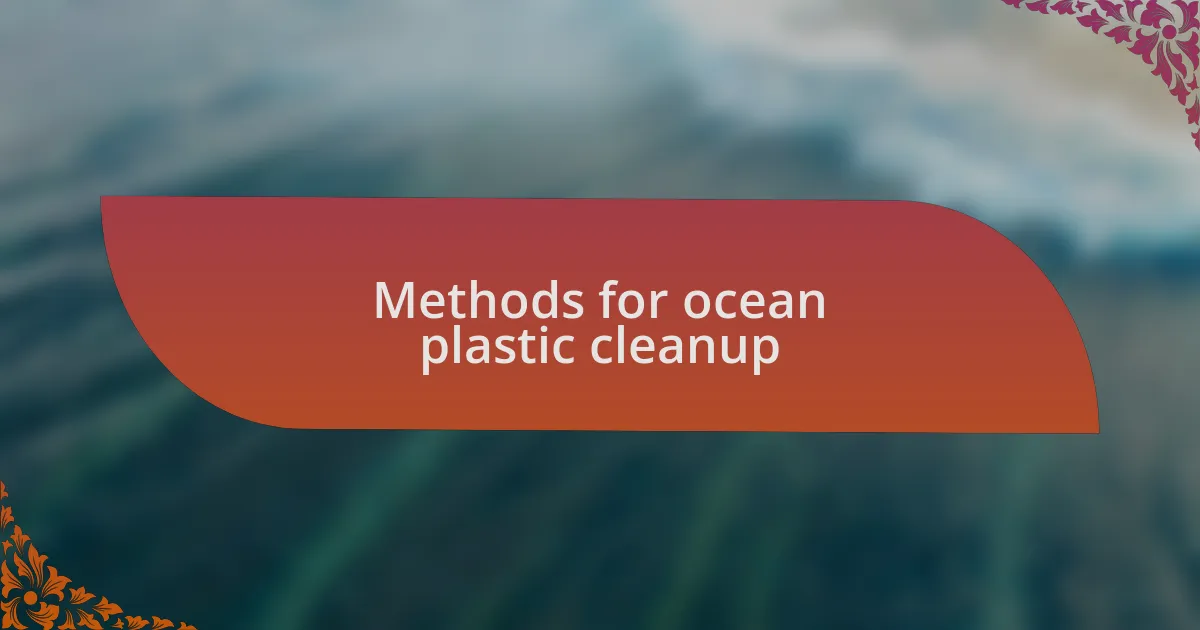
Methods for ocean plastic cleanup
When it comes to ocean plastic cleanup, innovative methods are making significant strides. For instance, I recently learned about the use of floating barriers that collect debris from the water’s surface, allowing for efficient removal of larger plastics before they break down into harmful microplastics. It’s a remarkable balance of engineering and environmental awareness, don’t you think?
Another fascinating approach involves the deployment of drones and AI technology to detect and locate plastic hotspots in the ocean. I remember attending a panel discussion where an engineer shared how this tech helps target clean-up efforts more effectively. The idea that we can harness technology to protect our oceans resonates with me; it’s a powerful reminder of how ingenuity can be directed toward conservation.
On a more grassroots level, community cleanup efforts have proven to be impactful as well. I participated in a local beach clean-up last summer and was astonished at the amount of plastic we collected as a group. It not only made a tangible difference but also fostered a sense of community and responsibility. Have you ever experienced the camaraderie that arises when people unite for a cause? It’s heartening to see individuals take action and contribute to restoring our beautiful coastlines.
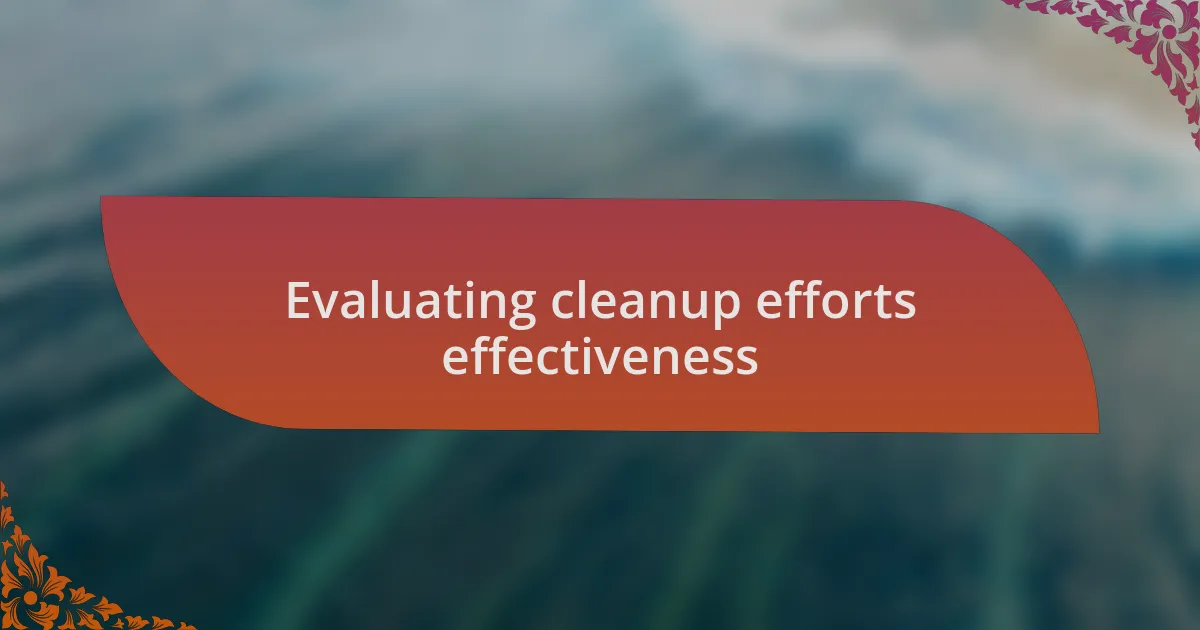
Evaluating cleanup efforts effectiveness
Evaluating the effectiveness of cleanup efforts is imperative to understand their actual impact on our oceans. For example, I once attended a workshop where researchers discussed measuring the quantities of plastic collected over time. It was eye-opening to realize that without proper metrics, we might not even see the true scale of these initiatives’ success or shortcomings.
Moreover, I’ve seen firsthand how community involvement can enhance cleanup missions. During one particular event on a coastal stretch I frequent, we gathered data on not just the volume of waste, but also its types. It’s fascinating how these statistics can illuminate trends, such as the prevalence of single-use plastics, encouraging targeted strategies. Have you thought about how data-driven cleanup efforts could shift public policies toward more sustainable practices?
To continue improving these strategies, it’s essential to analyze their long-term benefits. I’ve had conversations with fellow conservationists about the balance between immediate cleanup and root cause mitigation, like reducing plastic production. This ongoing dialogue makes me hopeful that one day, our cleanup efforts will not only reclaim our oceans but also instigate broader environmental change. Isn’t it inspiring when cleanup initiatives lead to bigger conversations about plastic use and sustainability?
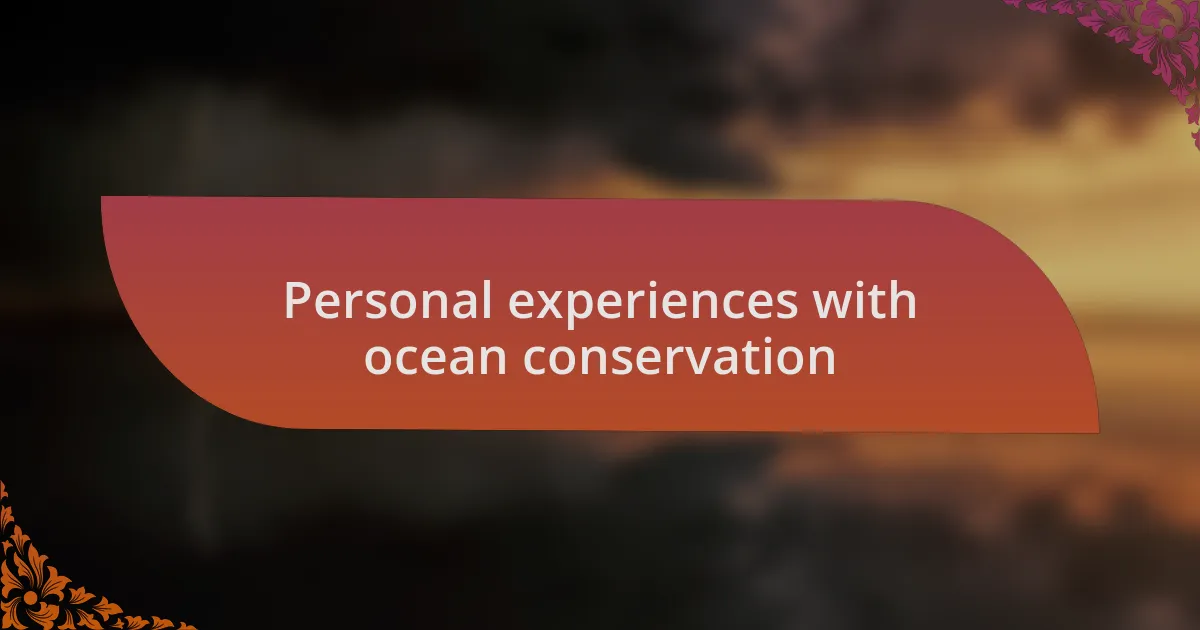
Personal experiences with ocean conservation
I remember the first time I joined a beach cleanup. The sun was shining, but the sight of scattered plastic bottles and bags along the shoreline left me feeling disheartened. As we filled our bags, I could see the direct impact we were making; our small group transformed a littered beach into a clean, beautiful space. It sparked something in me—what if everyone took just a few hours out of their day to make a difference?
One afternoon, I had a chance to speak with a local fisherman while volunteering. He shared stories of how plastic pollution was affecting his catch and, ultimately, his livelihood. Hearing his frustration made the issue feel more personal; it wasn’t just an environmental concern but an economic one for people invested in the ocean. How many other lives are intertwined with the health of our waters?
During another cleanup, I encountered a mother and her young daughter who were eager to make a difference. Watching the child excitedly pick up pieces of trash, I felt a mix of hope and urgency. It dawned on me that these experiences shape future generations. Are we instilling a sense of responsibility for the ocean in them? I believe we must; the lessons learned today are crucial for ensuring that tomorrow’s ocean is vibrant and thriving.